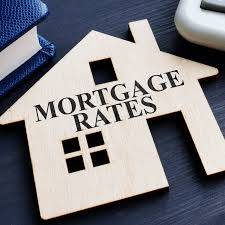Failures and Lessons in
Unsustainable Mortgage Practices in Ghana
Unsustainable mortgage practices
can lead to financial instability, exacerbate housing deficits, and create
long-term economic challenges. In Ghana, while efforts have been made to
develop a stable mortgage market, there have been notable failures that
underscore the need for reform and strategic planning. Examining these failures
provides critical lessons for stakeholders, enabling them to design policies
and practices that ensure sustainability.
1. Key Failures in
Unsustainable Mortgage Practices
A. High Interest Rates
- Ghana’s mortgage market is characterized by high interest
rates, often ranging between 20% and 30%, making mortgages unaffordable
for many households.
- High borrowing costs have discouraged middle- and low-income
earners from accessing housing finance, limiting the market's growth.
B. Limited
Accessibility
- Traditional mortgage products are often inaccessible to
individuals in the informal sector, which constitutes about 85% of Ghana’s
workforce.
- Stringent qualification criteria, such as the requirement for
formal employment and high down payments, exclude a significant portion of
the population.
C. Currency Risks
- Many mortgage products in Ghana are denominated in foreign
currencies, exposing borrowers to exchange rate fluctuations.
- Depreciation of the Ghanaian cedi increases repayment burdens
for borrowers, leading to higher default rates.
D. Poor Financial Literacy
- Limited understanding of mortgage products and repayment
obligations has resulted in poor decision-making among borrowers.
- Borrowers often fail to account for long-term affordability,
leading to financial stress and eventual defaults.
E. Weak Regulatory
Oversight
- Inadequate enforcement of regulations has allowed predatory
lending practices and high fees, further discouraging mortgage uptake.
- A lack of transparency in loan terms and conditions has
undermined trust in the mortgage sector.
F. Environmental
Neglect
- Traditional mortgage practices have failed to incorporate
environmental considerations, leading to housing developments that are
energy-inefficient and unsustainable.
- The absence of green mortgages has contributed to long-term
environmental degradation.
G. Housing Mismatch
- Mortgage financing has often targeted high-income earners,
resulting in a surplus of luxury housing while failing to address the
needs of low- and middle-income groups.
- This mismatch has left many units unsold, contributing to
inefficiencies in the housing market.
2. Case Studies of
Mortgage Failures in Ghana
A. Unaffordable
Mortgage Schemes
- Certain mortgage schemes launched by private developers failed
due to unrealistic pricing and high interest rates.
- Example: Luxury housing projects in Accra remain unoccupied
because they are out of reach for the average Ghanaian.
B. Currency-Denominated
Loans
- Some borrowers who took foreign-currency-denominated mortgages
experienced repayment difficulties due to cedi depreciation.
- Example: In 2014, borrowers with dollar-denominated mortgages
faced repayment increases of up to 50% due to rapid currency devaluation.
C. Failed Public
Housing Initiatives
- Government-backed mortgage schemes targeting affordable housing
failed due to poor implementation, corruption, and lack of funding.
- Example: The Saglemi Housing Project, intended to provide over
5,000 affordable homes, stalled due to mismanagement and legal challenges.
3. Lessons Learned from
Unsustainable Practices
A. Importance of
Affordability
- Lesson: Mortgages must be designed to align with the
income levels of the target population. Subsidies, lower interest rates,
and flexible repayment terms can enhance affordability.
- Action: Financial institutions should introduce
tiered mortgage products tailored to different income groups.
B. Addressing Currency
Risks
- Lesson: Local currency-denominated mortgages reduce
exposure to exchange rate fluctuations and make repayments more
predictable.
- Action: Stakeholders should prioritize loans in
Ghanaian cedis and seek partnerships to stabilize interest rates.
C. Promoting Financial
Literacy
- Lesson: Borrowers need education on mortgage terms,
budgeting, and long-term affordability to make informed decisions.
- Action: Financial institutions and regulators should
implement nationwide financial literacy campaigns.
D. Enhancing Regulatory
Oversight
- Lesson: Robust regulatory frameworks can curb
predatory lending and improve transparency.
- Action: Regulators must enforce compliance, ensure
fair lending practices, and protect borrower rights.
E. Incorporating
Environmental Sustainability
- Lesson: Green mortgages can promote energy
efficiency and reduce long-term costs for homeowners.
- Action: Policies and incentives should encourage the
adoption of eco-friendly housing developments.
F. Public-Private
Partnerships
- Lesson: Collaboration between the government and
private sector can expand access to affordable housing.
- Action: Governments should provide subsidies or
guarantees, while private developers focus on cost-efficient housing
solutions.
G. Prioritizing Low-
and Middle-Income Groups
- Lesson: Targeting underserved populations can help
address the housing deficit and create a balanced market.
- Action: Financial products should prioritize
inclusivity, focusing on the needs of low- and middle-income earners.
4. Recommendations for
Sustainable Mortgage Practices
A. Policy Reforms
- Introduce policies to regulate interest rates and reduce the
cost of borrowing.
- Develop comprehensive building codes that promote affordable
and environmentally sustainable housing.
B. Diversified
Financial Models
- Implement alternative financing options such as rent-to-own
schemes and micro-mortgages.
- Encourage peer-to-peer lending and crowdfunding for housing
projects.
C. Incentives for Green
Housing
- Offer tax breaks or subsidies for developers and homeowners who
adopt green construction practices.
- Promote the use of renewable energy systems in housing
developments.
D. Strengthening
Institutional Capacity
- Equip financial institutions with tools for effective risk
assessment and management.
- Train real estate developers on sustainable practices and
cost-efficient construction methods.
E. Collaborative
Efforts
- Foster partnerships among government bodies, financial
institutions, developers, and civil society organizations.
- Encourage international support for funding and technical
expertise in sustainable mortgage practices.
5. Conclusion
The failures of unsustainable
mortgage practices in Ghana provide valuable lessons for building a more
resilient and inclusive housing finance market. By addressing issues such as
affordability, regulatory oversight, and environmental sustainability, stakeholders
can create a mortgage system that meets the needs of Ghana’s diverse
population. Sustainable mortgage practices are not only essential for reducing
the housing deficit but also for promoting economic growth and social equity in
the long term.


